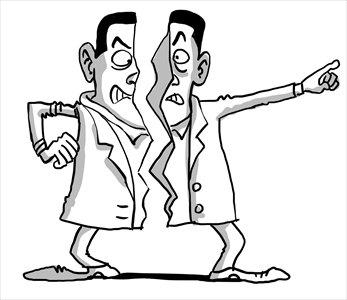HOME >> OP-ED
Turkey struggles to balance competing ideas
By Ding Gang Source:Global Times Published: 2013-7-31 20:48:01

Illustration: Liu Rui/GT
A trip to Istanbul last week sent me to the well-known Taksim Square, which is located in the European part of Turkey's old capital city. The square and its surrounding business streets are the best embodiment of Turkey's European charisma.Walking on a nearby pedestrian street, one feels as if one is roaming in an ancient European town, without feeling the Islamic influence to which 98 percent of the country's population adhere.
But just one month ago, students and members of the public gathered in Taksim Square and neighboring streets to protest against the reconstruction project of the neighboring Gezi Park. The protest finally triggered large-scale riots across the whole country.
When I walked through the square, it was sunset, and street lights were just coming on. A group of young people, under the close surveillance of armed police, were still sitting on the ground, continuing their protests in the form of dining together during Ramadan.
It should be noted that the purpose of these protests has already gone beyond their original claims, being enriched with more secular requirements. A female college student told me that she came to join the protest, in the hope that Turkish women could be treated like other women in Europe with more respect and freedom.
TRT, Turkey's national TV station, recently interviewed Ömer Tugrul Inancer, an influential Islamic opinion leader in Turkey. His controversial remarks fueled already tense conflicts between the secular forces and the conservatives.
Inancer made a clear statement, exhorting women who are over seven months pregnant to "not go around with those bellies" as it is "unpleasant" and "immoral." The interviewer responded with "May God listen to you."
When the interview was broadcast, many Turkish women were outraged. In some cities, pregnant women contacted each other through social media, and gathered on the streets to protest against Inancer's words.
The massive protests in Turkey seem to have come to an end. The government is trying every means to engage in direct talks with local communities, reportedly hoping to address the reconstruction issue through legal channels.
But Pandora's box has been opened. Conflicts between secular forces and the conservatives have been explicitly visualized. Protests in Turkey, though much more peaceful than those in Egypt, have produced the same influence over their own nation.
Turkey's success lies in its effective means to keep Islamism and governance separate. Secular forces pushed Turkey to open its door and develop its economy, much earlier and faster than other Muslim countries.
However, Turkey is not going too far away from Islam. How powerful secular forces can be relies on how much control the Islamic conservatives maintain. Such a see-saw balance has undercut Turkey's history of development for decades.
The protests in Turkey drew more attention to whether the country's democracy can be flexible enough to withstand this impact. But another perspective should not be ignored: How do Islamic societies transform when democratic systems become mature?
The resentment and grievance nursed among Turkey's young generations imply a much stronger desire for openness and political reform.
Turkish Prime Minister Recep Tayyip Erdogan, who mainly depends on grass-roots conservatives and the religious right for support, has to bear the brunt of such resentment.
One potential risk is still wavering: It is possible that tit-for-tat confrontations between secular forces and conservatives will rip the country apart. Islamic countries in West Asia and North Africa have seen this possibility become a reality. Radical moves by the secular forces often incur aggressive repercussions by conservatives.
Egypt is still endeavoring to become a modern Islamic democracy while Turkey has arrived at the crossroads of how to integrate Islamism with a democratic system in a balanced manner.
Only when we observe what is happening on a global scale, can we see that Islam, a religion shared by one-fourth of the world population, is undergoing rapid changes sparked by globalization.
The author is a senior editor with People's Daily. He is stationed in Brazil. dinggang@globaltimes.com.cn
Posted in: Viewpoint